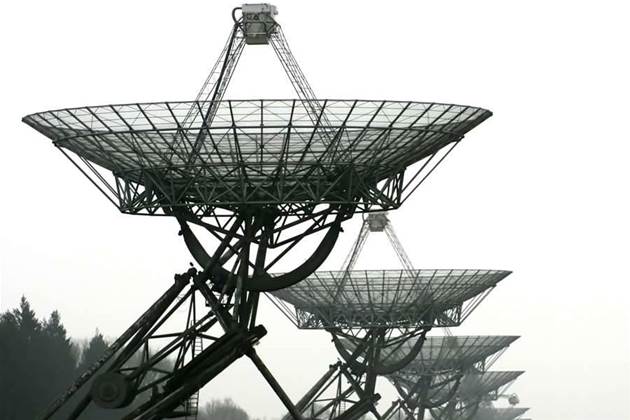NBN Co CEO Mike Quigley has dismissed Coalition concerns that international regulatory hurdles will delay the launch of two satellites planned for the National Broadband Network.

Quigley sparred with shadow communications minister Malcolm Turnbull at a parliamentary committee hearing yesterday, as the Coalition attempted to raise concerns over potential delays to the launch of the two Ka-band satellites, currently slated for 2015.
The satellites will ultimately provide broadband services to 200,000 premises or three percent of the Australian population as part of the NBN.
Turnbull criticised Quigley for suggesting the satellites could launch even if NBN Co failed to obtain the necessary slots from the International Telecommunications Union, determining where exactly they would sit in orbit.
"Do you agree that placing an order for the manufacturing of satellites ahead of securing the orbital slots imposes a level of financial uncertainty on this project?" Turnbull said.
But Quigley played down the potential risks of the regulatory hurdle to the satellites, suggesting the possibility of failure of the satellites themselves at launch posed a greater risk.
The two satellites, to be built by Space Systems/Loral under a $620 million contract, are currently slated to be launched five months apart.
Quigley said NBN Co was open to a final decision on how long to wait between launching the satellites, depending on redundancy and capacity requirements for the long term service.
NBN Co satellite manager Oliver Stacey told a satellite forum earlier on Monday that a hardware failure in either satellite could push a second satellite launch back by several years.
NBN Co is expected to complete tenders for the ground earth stations and launch services for the first satellite this year, while the required spectrum required for the satellite component of the NBN have also been recently sealed.
The orbital slots allowing NBN Co to launch the satellites in a specific portion of space above Earth remains one of the largest obstacles to their launch.
Turnbull pointed to past attempts to launch satellites without the necessary regulatory approval, such as the ProtoStar initiative, as an example of the risks associated with such a venture.
However, it is unlikely the long-term satellite component could be torn down by a future Coalition government due to the forward payments and $2 billion in contractual commitments NBN Co is expected to have signed by the 2013 election.
Quigley conceded there had been predecence of satellites launching or nearing launch date without successfully attaining the required regulatory approval from the ITU.
The biggest obstacles to regulatory approval - objection to NBN Co's bid - have yet to be heard by the international union.
Department of Broadband secretary Peter Harris said internal Government estimations had provided "a high degree of assurance" the slots would be awarded by the ITU before launch.
"This is not a risk that keeps me up at night," Quigley said.


_(23).jpg&h=140&w=231&c=1&s=0)

_(36).jpg&h=140&w=231&c=1&s=0)






 iTnews Executive Retreat - Security Leaders Edition
iTnews Executive Retreat - Security Leaders Edition
 iTnews Cloud Covered Breakfast Summit
iTnews Cloud Covered Breakfast Summit
 Melbourne Cloud & Datacenter Convention 2026
Melbourne Cloud & Datacenter Convention 2026
 The 2026 iAwards
The 2026 iAwards











_(1).jpg&h=140&w=231&c=1&s=0)



